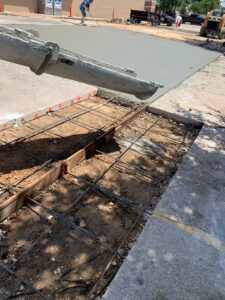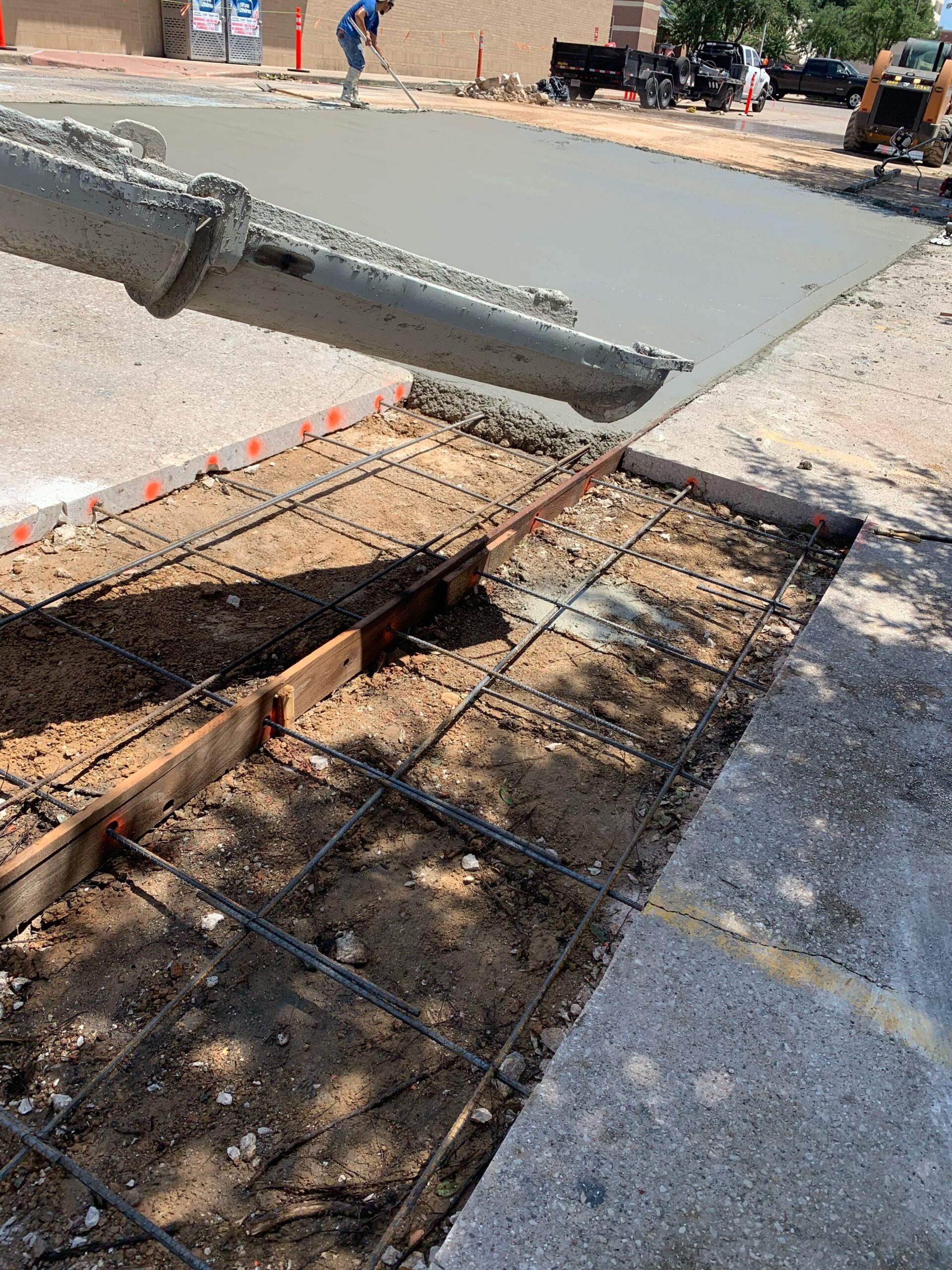
What Factors Affect the Longevity of a Concrete Parking Lot?
When concrete professionals are asked to estimate the life of a new parking lot, they will typically consider the following factors.
1. The quality of your concrete parking lot construction is a very important factor.
2. Like all outdoor structures, the life of a concrete parking lot can be affected by the weather to which it is exposed.
3. Usage also matters. This includes the traffic count as well as the weight of the vehicles.
4. Longevity can also be affected by the concrete parking lot maintenance that you provide.
How Does the Quality of a Concrete Parking Lot Construction Affect Its Longevity?
Your concrete contractor has a direct bearing on the longevity of your new parking lot. There are numerous steps that concrete parking lot contractors must take to construct your new pavement correctly.
1. Your contractor must choose the proper thickness of concrete to install. Most Houston concrete contractors consider the weight of the vehicles your parking lot will support to be the most important metric for choosing the concrete thickness. For example, if your parking lot will support heavy construction equipment, large recreational vehicles, or heavy trucks, concrete companies will make the pavement thicker than they would for parking lots that support passenger vehicles only.
2. Concrete contractors must evaluate the subgrade, which is the soil beneath your parking lot, to ensure that it is sufficient. An insufficient subgrade could allow the slabs to shift vertically, horizontally, or both vertically and horizontally. If the soil is insufficient, your concrete contractor may need to amend it by removing some of it and replacing it with better soil. The subgrade needs to be fairly uniform in both composition and density.
3. Your concrete parking lot may need a subbase. A subbase is typically a layer of gravel or sand that concrete companies install over the subgrade and beneath the pavement. It is critical that the subbase is uniformly dense and thick to distribute loads evenly so that structural cracks do not develop.
4. Concrete parking lot contractors must evaluate the pavement’s drainage and rectify any problems. Both subterranean and above-ground drainage must be considered.
5. Your contractor must select the best mix for your specific parking lot. A mix that contains aggregates ranging in size from fine to large can help the cement in the mix to bind all ingredients together tightly. This makes the pavement more durable, and it also makes it more resistant to salt and other chemicals, water, and other forces.
How Does the Weather Affect the Longevity of a Concrete Parking Lot?
Certain climates are rougher on concrete pavements than others. Heavy rain and bright sunlight can promote decay and accelerate deterioration.
How Does Usage Affect the Longevity of a Concrete Parking Lot?
Recreational vehicles, buses, large trucks, and other heavy vehicles inflict more stress and greater wear on concrete pavements, resulting in a shorter life. However, the number of vehicles can also affect the pavement’s longevity. Thus, the parking lot attached to a busy 24-hour restaurant will probably have a shorter life than one that only provides employee parking during normal business hours.
Are There Concrete Parking Lot Maintenance Procedures That Can Help Prolong the Life of the Pavement?
Generally, concrete pavements require little or no maintenance. However, a proactive concrete parking lot maintenance program can extend the life of the pavement.
1. A high-quality concrete sealant can help protect against chemicals, including salt, vehicle fluids, and other corrosive agents. You will need to wait at least three weeks after construction is completed before having your concrete contractor apply a sealant. The pavement will need to be resealed every two to three years.
2. If cracks develop, you should ask your concrete parking lot maintenance contractor to repair them as soon as possible. Neglected cracks let water penetrate the structure of the pavement, making damage more likely if the temperature falls below freezing or the water erodes the subbase or subgrade.
3. Do not allow pools of standing water to remain on your pavement for extended periods. If you know the puddles are from your sprinkler system, redirect them. Otherwise, ask your contractor to determine the cause and recommend a solution.
Marathon Solutions Group is a leading asphalt and concrete company serving many locations in the greater Houston area as well as parts of Oklahoma. Our concrete services include the construction of concrete parking lots, ramps, sidewalks, curbs, and ADA-compliant features, and we also offer concrete repairs. Our asphalt services include asphalt paving and resurfacing, sealcoating, crack repairs, and asphalt milling. In addition, we offer thermoplastic markings, industrial services, marking removal, parking lot striping and re-striping, parking lot maintenance plans, bollards, and parking lot signage. We are experienced professionals with impeccable references and an exemplary reputation for integrity, service, and craftsmanship. To request a free quote, call 800-879-1147, submit our online form, or email Sales@Marathon-Solutions.com.


